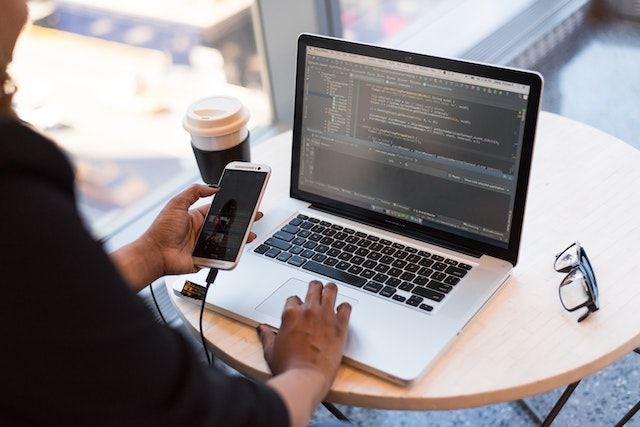App security has become increasingly important in today’s digital age. With the rise of mobile apps and the sensitive data they handle, mobile app development companies must implement essential features to protect user data.

From financial information to personal details, users entrust their data to apps, and developers are responsible for ensuring this data is kept safe and secure. Here are some essential features that developers should consider when building secure mobile apps:
Must To Have Security Features For Mobile App User Data Protection
Encryption
Encryption is one of the most crucial functions every app should have, which handles sensitive data.
Encryption transforms plain text into a message that a machine can only read with the key to decode it. This implies that even if the data were intercepted, a reader would need the key to decipher it. All sensitive data, including passwords and financial details, requires this sort of security during rest and transit. You can use industry-standard encryption techniques like AES or RSA to accomplish this.
Two-Factor Authentication
Two-factor authentication (2FA) is a feature that requires users to provide two forms of identification to access their accounts.
This adds a layer of security to the login process, further making it more difficult for hackers to access user accounts. Top mobile app developers use 2FA through various methods, such as SMS verification codes, biometric authentication (such as fingerprint or facial recognition), or hardware tokens. Consider implementing 2FA for all apps that handle sensitive data.
Secure Data Storage
Storing data is another essential feature developers should consider when building secure mobile apps. You must follow the best standards of storing all sensitive data in an encrypted format in a secure database.
Moreover, it would help if you also use solid passwords and access controls to protect the database. In addition, developers should implement regular backups and disaster recovery plans to make recovery feasible in case of any breach or data loss.
User Permissions
User permissions are another crucial feature for any app to protect mobile app user data. Developers are duty-bound to restrict database access to only those having permission.
For example, an app that accesses a user’s contacts should only be granted permission to access the contacts and not other data on the device. Developers should also ensure that users are informed about the data that the app collects and how it will be used. User agreements and privacy policies that are clear and simple can help with this.
Regular Security Updates
Regular security updates are essential for keeping mobile apps secure. Mobile app development company need to keep their apps regularly updated with security patches and bug fixes.
This can help prevent data vulnerabilities from being exploited by hackers. In addition, developers should monitor their apps for security issues and respond quickly to any reported vulnerabilities. By doing so, they can avoid any security issues and data breaches.
Code Review and Penetration Testing
Penetration testing is testing an app’s security by attempting to exploit vulnerabilities. This can help identify the app’s security weaknesses and allow developers to address them before hackers can misuse them.
Thorough code reviews and regular penetration testing help identify security vulnerabilities or weaknesses in the app. Developers can proactively address potential threats by conducting comprehensive security assessments and ensuring the app’s resilience against attacks.
Developers should consider conducting regular penetration testing on their apps to promptly identify and address any vulnerabilities.
User Education
App security is a shared responsibility between developers and users. Providing educational resources within the app, such as security tips or best practices, can help users understand their role in maintaining their data security and privacy.
Secure API Integration
Many top mobile app developers rely on APIs (Application Programming Interfaces) to communicate with external services or retrieve data. Secure integration with APIs is vital to prevent unauthorized access, data leakage, or API abuse. You can implement strong authentication and encryption protocols when interacting with APIs.
Secure Communication
Everyone understands that app communication requires security. Make use of encryption protocols such as SSL/TLS. This prevents eavesdropping and Man-in-the-Middle (MitM) attacks. By doing that, you make certain that sensitive data remains protected while in transit.
Conclusion
App security is essential for protecting app user data and preventing data breaches. By prioritizing app security, developers can build trust with their users and protect sensitive data from being compromised.
With the proper security measures in place, users can feel confident in using mobile apps and sharing their data without fear of it being stolen or misused.


Leave a Reply